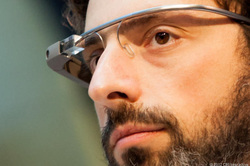
Recently, Google's new wearable glasses technology, Google Glass, has been in the news when a California driver was ticketed for wearing Glass while driving. Each state deals with driver distraction differently, so what is the verdict in Pennsylvania and New Jersey? Read more below for the current status of the law and Google Glass.
Any time that new technology is introduced, the law is slow to catch up with regulation. This was the case with GPS systems, mobile phones, and texting. Now comes Google Glass, which fits like a pair of glasses, and contains computer technology and a small transparent "screen" on the right hand side of the frame. Among other uses, the device allows wearers to record and view videos while wearing it. Until specific laws are created to deal with Google Glass and other wearable technology, police officers will only be able to work with current laws.
PENNSYLVANIA*
In Pennsylvania, the law most closely related to Google Glass would be 75 Pa. C.S. 3704:
PENNSYLVANIA*
In Pennsylvania, the law most closely related to Google Glass would be 75 Pa. C.S. 3704:
No person shall drive a vehicle when it is so loaded . . . as to obstruct the view of the driver to the front or sides of the vehicle or as to interfere with the driver's control over the driving mechanism of the vehicle[.]
This law pertains most directly to obstructions within the car, not worn by the driver. Still, it is likely that courts would enforce any tickets written for headwear or other objects which block the driver's view of the roadway.
Ultimately, in Pennsylvania it is hard to see how Google Glass obstructs the view of a driver to the extent required to receive a ticket. However, if an officer can prove that the user was viewing a video and driving while distracted, a careless driving ticket will likely be issued.
NEW JERSEY*
New Jersey has some of the toughest distracted driving laws in the country. Still, the laws directly refer only to phones and texting. The only statute that appears to relate to wearable technology such as Google Glass is NJ Stat. 39:3-74, which says:
Ultimately, in Pennsylvania it is hard to see how Google Glass obstructs the view of a driver to the extent required to receive a ticket. However, if an officer can prove that the user was viewing a video and driving while distracted, a careless driving ticket will likely be issued.
NEW JERSEY*
New Jersey has some of the toughest distracted driving laws in the country. Still, the laws directly refer only to phones and texting. The only statute that appears to relate to wearable technology such as Google Glass is NJ Stat. 39:3-74, which says:
No person shall drive any motor vehicle with any sign, poster, sticker or other non-transparent material upon the front windshield, wings, deflectors, side shields, corner lights adjoining windshield or front side windows of such vehicle[.]
No person shall drive any vehicle so constructed, equipped or loaded as to unduly interfere with the driver's vision to the front and to the sides.
Although many will say that the law does not apply to wearable technology because it speaks specifically of the construction, equipment, or loading of the vehicle, odds are good that New Jersey courts may include Google Glass as part of the "equipping" of the vehicle. Still, the law only addresses interference with the vision of the driver. It can be argued that the minimal nature of Google Glass does not actually interfere with the vision of a driver.
Overall, drivers should exercise extreme caution when using new technologies such as Google Glass, particularly in states such as New Jersey which crack down hard on distracted driving. Even if the existing state laws do not directly address the technology, police officers and courts will likely try to expand the reach of the laws in order to hold a driver responsible.
* This analysis takes the law as it stands on November 8, 2013. Keep in mind that laws often change, particularly to address new technology. As always, drivers should exercise caution and pay full attention to the road, regardless of whether their technologies are legal.
Overall, drivers should exercise extreme caution when using new technologies such as Google Glass, particularly in states such as New Jersey which crack down hard on distracted driving. Even if the existing state laws do not directly address the technology, police officers and courts will likely try to expand the reach of the laws in order to hold a driver responsible.
* This analysis takes the law as it stands on November 8, 2013. Keep in mind that laws often change, particularly to address new technology. As always, drivers should exercise caution and pay full attention to the road, regardless of whether their technologies are legal.
 RSS Feed
RSS Feed
